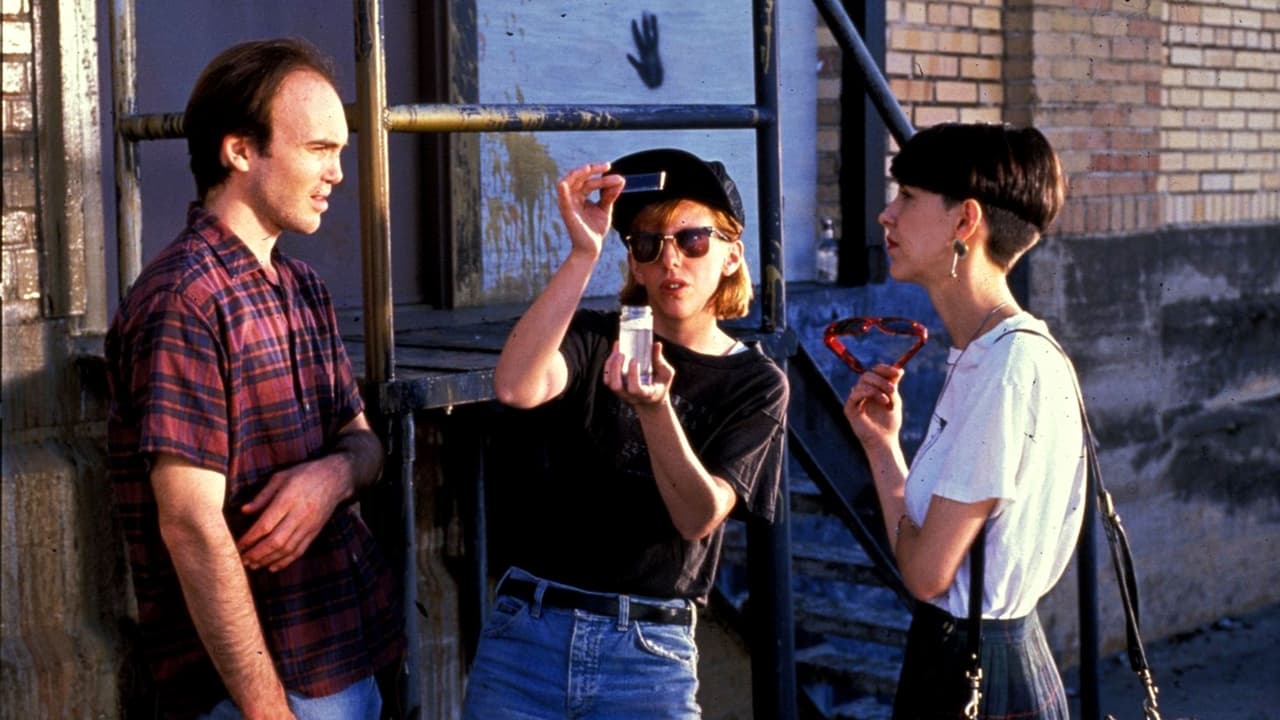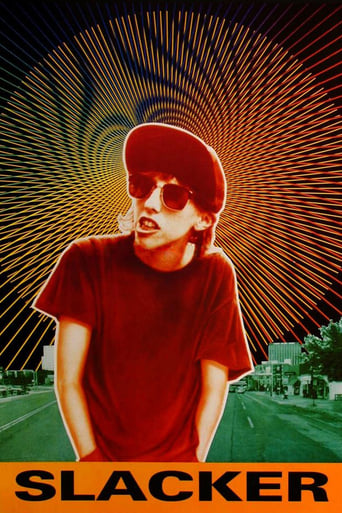

Basically a crazy quilt glimpse into a day in the life of a colorfully kooky assortment of fringe folks in Austin, Texas, writer/director Richard Linklater's idiosyncratic cinematic meditation on the endearingly absurd, comical, and sometimes even desperate measures loopy, marginal, and/or disenfranchised people are willing to resort to in order to give their empty and aimless existences some semblance of meaning and purpose displays a genuinely disarming affection for these lovably wayward souls that's both affecting and amusing in equal measure. Moreover, the vivid array of oddballs, deadbeats, dropouts, anarchists, and crackpot conspiracy theorists featured throughout for the most part are a quite funny and engaging bunch. The rambling free-form narrative structure boldly eschews convention and predictability while Lee Daniel's fluid cinematography makes adept and impressive use of long takes and continuous tracking shots. A quirky delight.
... View MorePortraying a mundane Summer's day in Austin, Texas, Richard Linklater's riotously funny and often though provoking sophomore film is one of the greatest indie movies I have ever seen. Refreshingly entertaining and compulsively rewatchable, "Slacker" does not focus on story or even meaning; instead it works as a sort of character study, however it is a character study that lacks a main character, or any main characters for that matter. The camera flows through Austin's streets searching for its next subject; the audience gets a taste of one strange person's day to day experiences and moves on to another's. Witty, sometimes amusingly pretentious dialogue is spit back and forth constantly as Linklater paints his city portrait with a palate made up of conspiracy theorists, aspiring musicians, artists, (pseudo) intellectuals, anarchists, photographers, filmmakers, students, hitchhikers, philosophers, and so on. The countless characters are explored in a fashion that is not directly mocking, but still contains a slice of light, tongue in cheek satire. The camera moves with grace, tracing various streets and buildings, briefly observing multitudes of often weird, sometimes brilliant conversations. Everything from the hidden messages of Saturday morning cartoons to the government's hidden Mars colonies is discussed in a way that provides laughter of the highest (and smartest) degree.
... View MoreRichard Linklater creates an indie of a day in Austin, Texas. The camera follows one character leading to another in a series of portrait of misfits and disenfranchised. Linklater uses long uncut takes of these people talking usually in a monologue. The series of eccentric discussions and weird characters are a mesmerizing tapestry. Individually interesting, they are string together until it creates a picture of a subculture and a neighborhood. It's not a narrative and it's very random. I do have some problems especially with the lady getting run over and nobody seeming to care. It makes the people look heartless which I hope isn't Linklater's intent. Otherwise it's an interesting unique indie.
... View MoreObviously for those wondering about this film, you pretty much get the gist of what it's about. It's definitely experimental, even moreso than what I thought. Because of the poster you assume there's still a lead protagonist, but nope. It really only follows these people and what they believe in, their everyday activities, their life and their culture. A lot of this is really funny, and much of it also sort of hard to get into simply because of the format. I recommend this, but with reservations. I don't think it's one of Linklater's best films, but one of his mot admirable and probably one of his most influential as well, if not the most.
... View More